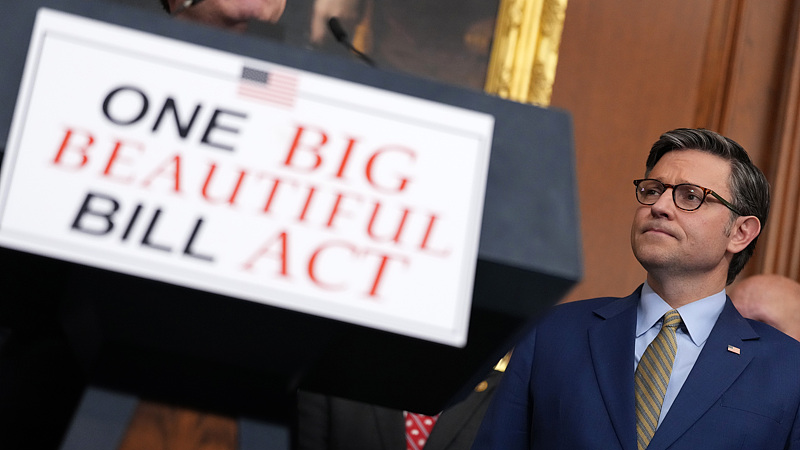The U.S. House of Representatives narrowly approved a sweeping tax and spending bill on Thursday by a razor-thin margin of 215 to 214 votes, launching a firestorm of criticism over its impact on national debt and social programs.
The legislation extends the corporate and individual tax cuts enacted in 2017, introduces new relief for tips, overtime pay and car loan interest, boosts defense and border security funding, and reverses several clean energy incentives.
Critics warn the bill will push the national debt higher by about $3 trillion compared to current projections and remove around 13 million people from Medicaid or Affordable Care Act exchanges by raising eligibility thresholds and cutting aid for low-income groups.
Senate Minority Leader Chuck Schumer labeled the package a 'billionaire boondoggle' and called it 'ugly', saying that cuts to Medicaid and food assistance threaten food relief stations and rural hospitals, while removing green energy incentives could slow renewable development.
Dean Baker, senior economist at the Center for Economic and Policy Research, highlights the $3 trillion debt increase and the loss of crucial health coverage for millions. Brookings Institution Senior Fellow Darrell West adds that many vulnerable communities rely on Medicaid and could face severe hardship.
Economic warnings are mounting: Moody's recently downgraded U.S. sovereign credit to Aa1, citing debt concerns, and 30-year Treasury yields briefly jumped to 5.15 percent as investors reacted to the escalating deficit.
Budget analysts point out that the lowest 10 percent of households stand to lose resources, while the top 10 percent will see gains, raising questions about fairness and long-term fiscal health.
The bill now moves to the Senate, where its fate will determine whether these tax breaks and spending cuts become law. If approved by both chambers, it will head to the president's desk.
Reference(s):
U.S. bill blasted for raising debt, cutting aid for low income groups
cgtn.com



